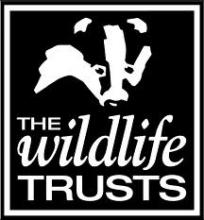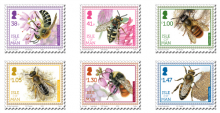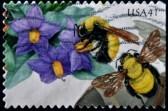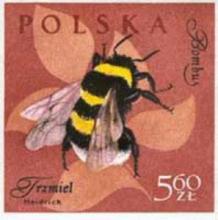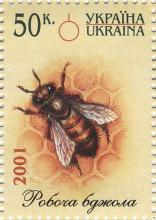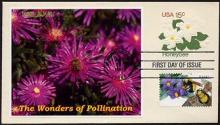
Evidence from around the world points to falling and increasingly unpredictable yields of insect-pollinated crops, particularly in the areas with the most intensive farming. Where crops are grown in vast fields, there are not enough insects to go around. If insecticides are sprayed too frequently, then vital pollinators cannot survive. The most dramatic example comes from the apple and pear orchards of south west China, where wild bees have been eradicated by excessive pesticide use and a lack of natural habitat. In recent years, farmers have been forced to hand-pollinate their trees, carrying pots of pollen and paintbrushes with which to individually pollinate every flower, and using their children to climb up to the highest blossoms. This is clearly just possible for this high-value crop, but there are not enough humans in the world to pollinate all of our crops by hand. Without bees, our diets would be depressingly poor. We would be forced to survive on wind-pollinated crops; wheat, barley and corn, and little else. Imagine shops without raspberries, apples, strawberries, peas, beans, courgettes, melons, tomatoes, blueberries, pumpkins and much more. Bees and other insects have provided free pollination for our crops for millennia. They will continue to do so if we learn to recognise their importance and return the favour by providing them with what they need to survive.


